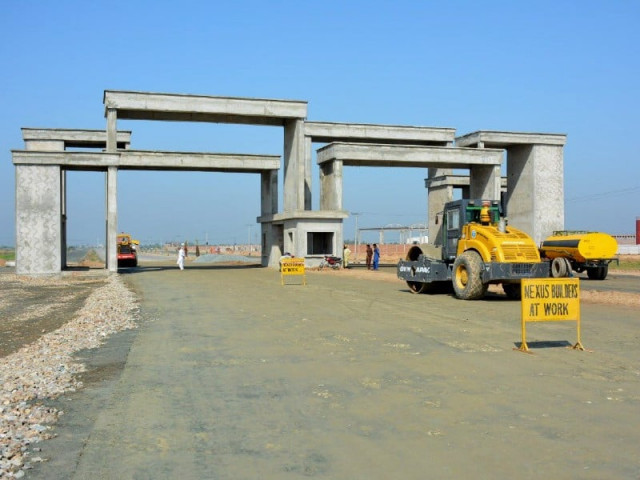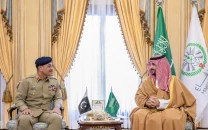Singapore investors urged to set up industries in CPEC SEZs
CPEC chairman terms opportunity a "win-win" situation for investors

China-Pakistan Economic Corridor (CPEC) Chairman Lt Gen (retd) Asim Saleem Bajwa called upon investors from Singapore on Thursday to tap into the opportunities being developed at the newly established Special Economic Zones (SEZs) under CPEC.
Speaking at a webinar on Investment Opportunities in CPEC related SEZs as a keynote speaker, Bajwa termed the investors' participation as a "win-win opportunity“. He added that the country had a large young human resource and cheap labour force to offer.
The event was jointly organised by the Pakistan High Commission and the Embassy of China in Singapore.
The CPEC chairman added that the country was focused on industrialisation and development, adding that Singapore investors could benefit from that potential.
He said Singapore could be a role model for economic development in Pakistan and that the Pakistani government wanted to use the expertise of its investors, especially in the ares of science and technology and industrialisation.
Speaking about the importance and achievements of the mega project, the chairman pointed out that CPEC was a lifeline for Pakistan.
The first phase, largely meant to bridge the energy and infrastructure gaps in the country, had almost been completed, he informed.
“We are now moving towards the second phase of CPEC, with a range of sectors including industrialisation, tourism, science technology and agriculture,” he added.
Bajwa stated that some 37 Special Economic Zones had been identified in Pakistan, out of which nine were prioritised and four were shortlisted as the most important ones.
Read CPEC fits perfectly with Pakistan’s geo-economic paradigm: NSA Moeed Yusuf
The Rashakai Economic Zone with a land cover of over 1,000 acres has already been launched, where a Chinese company Century Steel has established its industry. It is likely to start production within a year, he said, adding that 25 more companies were also lined up to set up their factories in the zone.
Furthermore, he said the Allama Iqbal Zone in Faisalabad was also functional where a number of new industries were being constructed.
Bajwa said that foreign investors could tap into the potential, especially in the textile and garments sector. He added that the pharmaceutical industry was also highly suitable for invetments.
Similarly, the CPEC chairman added that another SEZ, near the port city of Karachi, was also to be launched soon.
The Gwadar Free Zone Phase-I, comprising 60 acres land, had also been completed and about 46 investors had invested in these zones. He said there were about 12 factories in these free zones, and out of all of them construction work on three factories had been completed so far.
He added that the free zone phase-II, with a land cover of about 2,200 acres, would be completed by September this year, and would help attract more foreign as well as local investments.
He said that the free zones project under CPEC would be completed in four phases and the project would be fully materialized by 2030, which would play vital role in economic development of the country. The Prime Minister, he said had recently ground broken the second phase.
The chairman added that Gwadar was in the process of being connected with the northern side of the country as construction work on the western route of CPEC was in progress.
He further informed that the Boston SEZ was another prioritised zone, located near the city of Quetta. The city is the epicentre of mines and minerals, he said, adding that investors concerned with this sector can also set up plants there.
He informed that the Iran border was very near to the Gwadar Port city and formal trade with Iran through the port would start soon.



















COMMENTS
Comments are moderated and generally will be posted if they are on-topic and not abusive.
For more information, please see our Comments FAQ